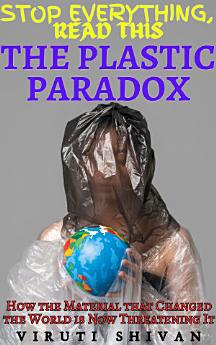The Plastic Paradox - How the Material that Changed the World is Now Threatening It: Unveiling the Impact and Future of Synthetic Convenience
About this ebook
This book delves into the history of plastic, tracing its rise from a scientific marvel to a global pollutant. It examines the pervasive use of plastics, highlighting how they have shaped modern society and contributed to technological advancements. However, the narrative takes a critical turn by exposing the dark side of plastic consumption – the environmental and health hazards posed by its non-biodegradable nature.
The author paints a vivid picture of the current plastic crisis, from the swirling gyres of waste in our oceans to the microplastics infiltrating the food chain. The book not only explores the ecological impacts but also the social and economic dimensions of plastic pollution. It challenges readers to confront uncomfortable truths about consumption habits and the cost of convenience.
Looking towards the future, "The Plastic Paradox" explores the innovations and movements towards sustainable alternatives and plastic waste management. It offers a balanced view of the possible solutions, from biodegradable plastics to global policy initiatives, assessing their feasibility and potential impact.
This book is an essential read for anyone interested in understanding the complex relationship between human progress and environmental stewardship. It’s a call to action, urging readers to rethink their relationship with plastic and to be part of a sustainable solution.







